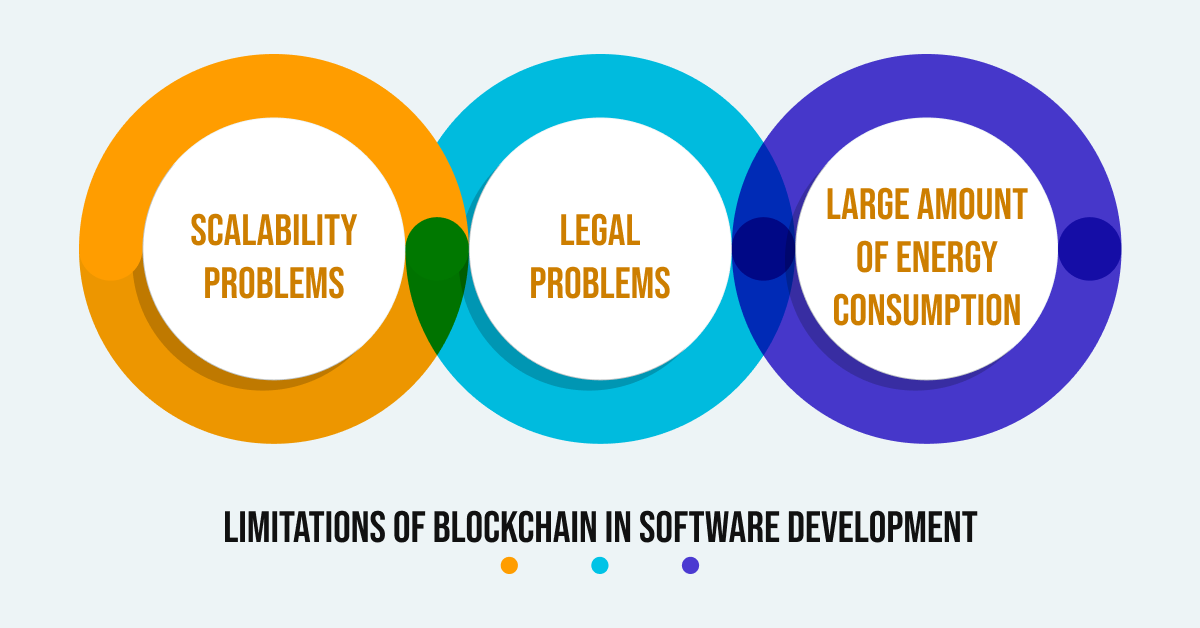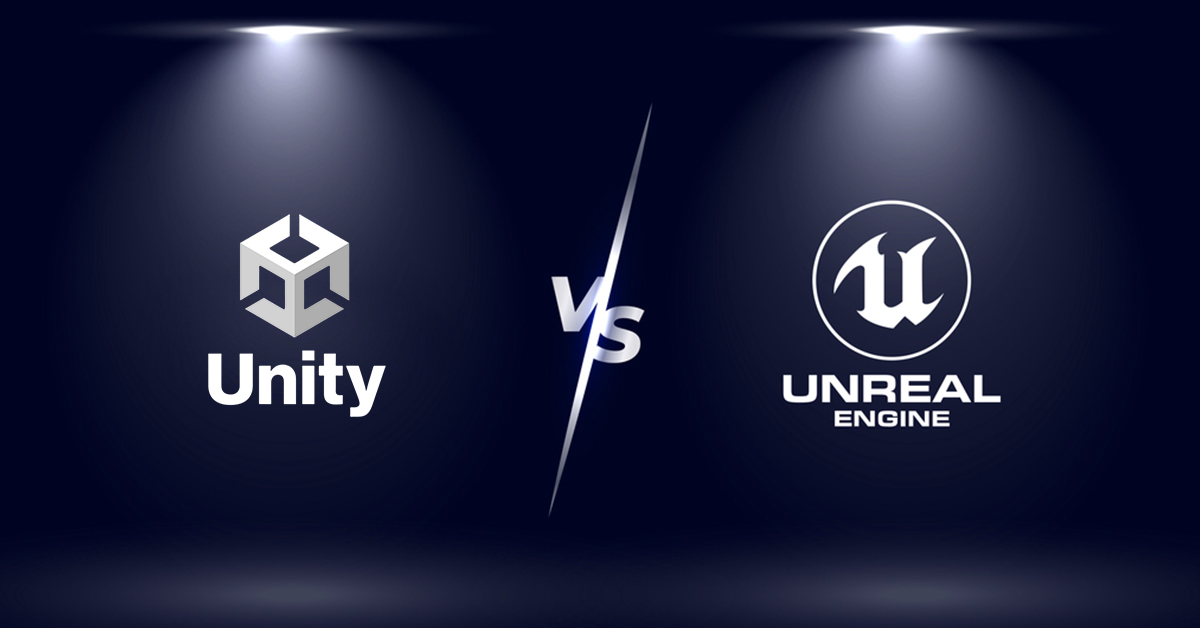
The Crucial Role of Blockchain in Revolutionizing Software Development
-
By Paramjit Singh
-
17th October 2023
As a well-informed global citizen, you must have heard of Blockchain. Let us clarify all our social media enthusiasts: it’s not Tiffany’s latest jewelry collection. But it’s an innovative decentralized digital ledger system that records transactions across multiple computers. Unlike traditional methods, Blockchain records transactions in a way that ensures complete security, transparency, and immutability. We know that’s a lot of information to grab in the first moment.
Understand this by Blockchain technology’s prime example, Bitcoin (a digital currency in which your intelligent uncle must be trade-in).
Bitcoin uses a blockchain to record all transactions. When someone makes a transaction in Bitcoin, it gets added to a block, which is then linked to the previous block, forming a chain. This ensures that the transaction history is secure, transparent, and cannot be altered.
In the dynamic landscape of technology, Blockchain has emerged as a true game changer. Besides acting as the foundation for numerous cryptocurrencies, it is also revolutionizing various industries. In today’s era, the most significant impact of Blockchain can be seen in the world of software development. Software development is the long process of creating, designing, testing, and maintaining computer applications. And, in this complicated technology, Blockchain is making significant changes. This blog post will discuss the crucial role of Blockchain in software development. Before delving into the role of Blockchain technology, let’s discuss the common challenges faced by traditional software development.
Blockchain Transforming Software Development: Common Challenges & Solutions
Software development has undergone some remarkable changes in the past few years due to the popularity of technologies like DevOps and Blockchain. Still, traditional software development methods are widely used in the current era. Many applications continue to be developed using conventional approaches that rely on centralized architecture and client-server models. However, there are many challenges in this system, too. But, with the debut of Blockchain, software developers can resist these challenges with innovative solutions. Blockchain technology first came to limelight in 2009 with the launch of Bitcoin. Since then, there’s no stopping. With each passing year, the role of Blockchain in software development is widening and widening. Following are a few challenges faced in software development and right below each point, there are solutions indicating how Blockchain is transforming Software development.
Challenge #1: Centralization and Security Concerns
Can we ask you one question? What is centralized software? A system that relies on a single central authority or server to manage data and transactions is known as centralized software.
That’s the correct answer. However, the issue is that this centralized system can result in data breaches or system failures. Above all that, traditional software development also uses this centralized system.
Solution: Decentralized Applications (DApps)
In the Challenges section, we’ve explained the meaning of centralized. So, as per your POV, what does decentralized applications mean to you?
Simply, the applications that run on a decentralized network (Blockchain) without relying on a single central server are known as the Decentralized Applications (DApps). These applications use the collective computing power of the network’s nodes. With the inclusion of decentralization applications, Blockchain is enhancing the security and transparency of software development. Moreover, DApps can use cryptocurrencies as their native tokens, allowing effortless transactions within the application. Therefore, incorporating Blockchain in software development can elevate the security of your applications.
Challenge #2: Lack of Transparency and Accountability
The biggest challenge for traditional software development is its lack of transparency. Traditional software development is not always clear how data is being processed or who is responsible for specific actions. Therefore, it becomes easy for hackers and fraudsters to attack specific software’s data. Due to this reason, many software of past decades have experienced fraudulent activities.
Solution: Smart Contract Development
Over the past few years, Blockchain technology has taken advantage of smart contracts for software development to reduce potential disputes.
What are these smart contracts? (You must be having this question in your mind). So, here is the answer
Smart contracts are self-executing contracts with the terms written directly into code. These contracts automatically execute and enforce the terms, eliminating the need for intermediaries and disputes.
These smart contracts are deployed on a blockchain, ensuring transparency within the software development. Whether it’s finance or supply chain, smart contracts are boosting the role of Blockchain in software development.
Challenge #3: Data Integrity Issue
Before discussing this challenge, let’s first understand what, exactly, data integrity means. In simple words, it can be referred to as the accuracy and reliability of data in a system.
In the case of traditional software development, it can be said that there are numerous data integrity issues. Firstly, it involves less robust security measures, resulting in data breach activities in specific software. Secondly, data migration and synchronization include the risk of errors across different parts of a system, resulting in huge discrepancies.
Solution: Improved Security Measures
The primary reason behind the popularity of Blockchain is its security measures. By employing a cryptographic technique to secure data and transactions, the role of Blockchain in software development is making a considerable rise. The transparency and security of Blockchain are so tight that even professional hackers can find it difficult to hack the specific system. In simple words, it can be explained as:
Cryptographic security + decentralized nature of Blockchain = Reducing the risk of hacking
In a modern world, where fraudulent activities and hacking are becoming emerging global issues, Blockchain technology acts as a resistance to all these problems. This has further certified that the role of Blockchain in software development is on high rise.
Limitations of Blockchain in Software Development

Like every helpful technology in this world, Blockchain also involves several limitations that can affect its transparency and scalability in certain situations. Let’s check the three top limitations and their respective solutions for Blockchain in software development.
Limitation #1: Scalability Problems
Many times, blockchain platforms offer slower transactions due to several transaction increases. Moreover, Blockchains such as Bitcoin and Ethereum also include a limited amount of transactions per second.
Solution:
In this situation, software developers tend to overcome this scalability issue by considering solutions like off-chain transactions and sharding.
Limitation #2: Legal Problems
Besides scalability issues, legal problems are another primary limitation of Blockchain in software development.
Till now, we’ve looked at the significant role of Blockchain in software development through its decentralized nature. But how would you react if we say this decentralized nature also results in a legal challenge for Blockchain? It would be surprising! But a blog post without surprises is of no use. Let’s return to the topic.
So, in many jurisdictions, the legal status of decentralized applications and Blockchain remains unclear, hindering the process of software development.
Solution:
To stabilize the legal status, engage with legal experts and stay compliant with evolving regulations.
Limitation #3: Large Amount of Energy Consumption
Incorporating Blockchain in Software development involves a high amount of energy consumption in the form of computational power to run the whole platform seamlessly. Therefore, this results in environmental concerns and further limits the practicality of such blockchains.
Solution:
To resist this issue, consider an energy-efficient form of computational power.
Future Trends and Innovations:
Interoperability with Other Technologies:
Many leaders of the tech world are considering introducing the concept of Interoperability. Before going further, let’s understand what Interoperability means. So, it refers to the ability of different blockchain platforms and systems to work together seamlessly. Currently, many blockchain networks are following this concept. But, in upcoming years, this can come forward as one of the biggest trends for Blockchain in software development.
Blockchain in IoT and AI:
What are the hot topics in the tech field currently? Probably IoT (Internet of Things) and Artificial Intelligence (AI). Therefore, it is very obvious that we’ll witness the integration of Blockchain technology with AI and IoT. By doing so, recording and verifying the interactions and data exchange will become more secure. Moreover, it can benefit all three technologies in their marketing and campaigning.
Deftsoft: A Leading Provider of Blockchain Development Services
With each passing day, the role of Blockchain in software development is widening. This is the best time to decentralize your business with the help of a professional Blockchain app development provider. As a leading Blockchain software development company, Deftsoft is the ultimate partner to elevate your business. Whether you have a finance business or real estate, we’ll help you in all conditions with top-tier Blockchain developer services. From Smart Contract Development to Blockchain Software Development, our wide range of services will make you one step closer to getting superior scalability, security, and transparency for your business. So, don’t look left or right; choose Deftsoft and enter the countless opportunities for your business through Blockchain application development services.
Final Thoughts:
In conclusion, the impact of Blockchain in software development is transformative and far-reaching. By offering decentralized applications (DApps), enabling smart contracts, and enhancing security measures, Blockchain has revolutionized how we approach software creation. However, it’s important to acknowledge limitations, including scalability and legal challenges, along with the energy consumption associated with some blockchains. Looking ahead, the integration of Blockchain with IoT and AI, as well as the push for Interoperability among various platforms, represent exciting future trends. As the landscape continues to evolve, companies like Deftsoft (A leading Blockchain app development company) stand ready to provide cutting-edge blockchain app development services, offering businesses the opportunity to leverage this revolutionary technology for superior scalability, security, and transparency. Choose Deftsoft and unlock the countless possibilities for your business through blockchain application development services.
Recent Articles
-

Unity vs Unreal Engine 5: Which is Better?
-

Non-Negotiable Tips for Developing a P2P Lending Platform
-

The 8 Leading Cross-Platform App Development Frameworks You Should Know
-

Step-by-Step Guide: How to Build a dApp on Ethereum with Ease
-

Why Does Your Business Need Blockchain Development Company’s Expertise?

Paramjit Singh
 17th October 2023
17th October 2023